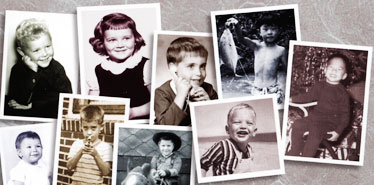The “Greater Good” radio and television programs spawn a book that provides inspiration on the go
STORY SUMMARY »
Ever wondered how Hawaii’s most successful business leaders rose to the top? You might be surprised by the answers.
About two years ago, Evan and Kari Leong started a radio and television show featuring in-depth personal conversations with notables — many of whom rarely grant interviews. “Greater Good Radio,” along with the television show that adds a visual element to the audio exchange, resonated with so many people that the young husband-and-wife team decided to write a book as part of their ongoing volunteer effort to inspire others to give back to the community.
They took some of the best transcripts from those interviews and reduced them to several readable paragraphs in sections such as “What’s Your Purpose?” “Follow Your Passion” and “The Importance of Family.” The result is an inspiring and readable volume — now available in paperback, just in time to serve as motivation for new graduates.
FULL STORY »
By Katherine Nichols
knichols@starbulletin.com
A sentence in Evan Leong’s introduction to the book he wrote with his wife, Kari Leong, explains everything about how the print project evolved. “As it turns out,” he wrote, “what was first envisioned as a success-in-business book has become a book on life itself.” Attending 12 funerals in 2004 helped Evan discover his purpose: “To inspire as many people as possible and to help them make a positive difference in their lives.”
“The Greater Good: Life Lessons from Hawaii’s Leaders” emerged from the well-respected radio and television shows by the same name — projects the hosts, the Leongs, launched as a public service effort of their own while raising two young children and running their own Bubble Tea Supply Co.
In the two years since the radio show began, they have invited dozens of prominent Hawaii business leaders to share the personal and professional stories that led to their success. The open, casual discussions usually reveal determination, failures, regrets, inspirational turning points and a commitment to giving back to the community.
“The Greater Good: Life Lessons from Hawaii’s Leaders” by Evan and Kari Leong (Watermark, $24.95 hardcover)
Paperback edition ($19.95) may be preordered at bookstores and at booklineshawaii.com.
To hear interviews from the Leong’s radio show visit www.greatergoodradio.com.
For the book, Kari and Evan chose 45 of the best half-hour radio/television interviews and reduced each one to several concise, readable paragraphs.
“I think people like the book because they can get inspired daily while waiting for someone in their car,” Evan said of the 207-page volume that’s easily consumed in short bursts. “We kind of wrote it the way we would want to read it. And it gives a human perspective to things. A lot of people are getting involved in the community as a result.”
Published by Watermark, the book is divided into sections titled “What’s Your Purpose?” “Follow Your Passion,” “Giving Back,” “Overcoming Adversity,” “Building Relationships,” “The Importance of Family” and “Undeniable Faith.” Six or seven community leaders contribute to each chapter with brief essays about their lives and work in an effort to “provide different perspectives on these themes,” said Evan. A brief biography of the contributor sits in the corner of each piece.
“The Greater Good” is illustrated with images of local leaders as children. Top row from left: Dennis Francis, president and publisher, Star-Bulletin and MidWeek; Joan Bennet, president and CEO, Bennet Group Strategic Communications; Stephen B. Metter, CEO, MW Group; Sanford Murata, president, Sanford Murata Inc.; Stephen Ai, president and CEO, City Mill. Bottom row: Crystal K. Rose, partner, Bays, Deaver, Lung, Rose & Holma; Dick Gushman, CEO, DGM Group; Rick Blangiardi, president and general manager, KGMB; Nate Smith, president and CEO, Time Warner Cable.
A story from John Dean, managing partner of Startup Capital Ventures and former CEO of Silicon Valley Bank, recalled a bank officer, Bob Huffman, who developed ALS, or Lou Gehrig’s disease, while he and Dean tried to turn around the First National Bank of Oklahoma City, which was “hemorrhaging losses” at the time.
Part of the plan to improve the business involved creating a new set of core values. Everyone wanted to make a commitment to the community and build trust and respect for the employees. But this occurred in a most unexpected way. When Huffman became ill and quickly lost the ability to walk and talk, his fellow employees helped care for him, and the bank arranged for a van to transport Huffman and his wheelchair to work each day.
“Seeing Bob day in and day out was an inspiration to many of us at the bank,” Dean wrote. Ironically, in those two years the bank went from “a failed institution to the most profitable bank in the state. And I would argue that our commitment to Bob and to all employees is what drove the turnaround.”
Nainoa Thompson explored navigating with your heart “when you can’t see with your eyes,” and retired Navy Capt. Jerry Coffee recalled his seven years as a prisoner of war in Vietnam. His turnaround occurred when he stopped saying, “Why me?” and began asking God to prepare him to be a “better, stronger, smarter person in every possible way,” and to use the time — much of it spent in solitary confinement — productively.
An especially moving essay came from U.S. Sen. Daniel Inouye. He remembered joining the military as an 18-year-old private in 1943, when people of Japanese descent were finally allowed to serve their country. In understated language he recounted his multiple, severe wounds and the harrowing transport to the medical tent. Doctors had given up on him until a chaplain — who realized the young Inouye would fight for his life at all costs — urged the medical team to provide more immediate attention. Inouye received 17 transfusions, barely escaping death.
In the section about family, Robin Campaniano, president and CEO of AIG Hawaii Insurance Co., explained how missing the opportunity to teach his children to ride bicycles altered his professional choices. “I canceled my upcoming trip, didn’t give the speech I had been working on, and shortly thereafter, left my position.” he wrote. “If your family life is balanced, everything else will follow.”
Indeed, Evan Leong noted that the “number one regret from the interviewees was not spending enough time with their children when they were young.”
Keeping everything in perspective is part of the larger picture for the Leongs. Their primary goal with the Greater Good projects has always focused on assisting social services and nonprofits in a way that transcends their own ability to directly volunteer by igniting in others the passion to help. In addition, they are mobilizing partnerships between corporations, government and nonprofit organizations so each can help the other and, in turn, benefit the community.
“All of what we’re doing now is bringing the community together,” Evan said. “It’s the 21st-century ahupuaa.”
They end the book with a simple statement that will resonate with anyone yearning for success and wondering about the path that will lead them there: “You have the ability to create a better life. Make your life a work of art. Create your life to make a difference.”
Original article: http://starbulletin.com/2008/05/06/features/story01.html


